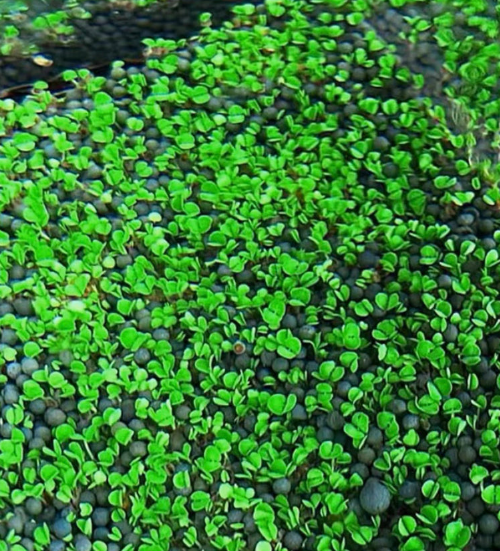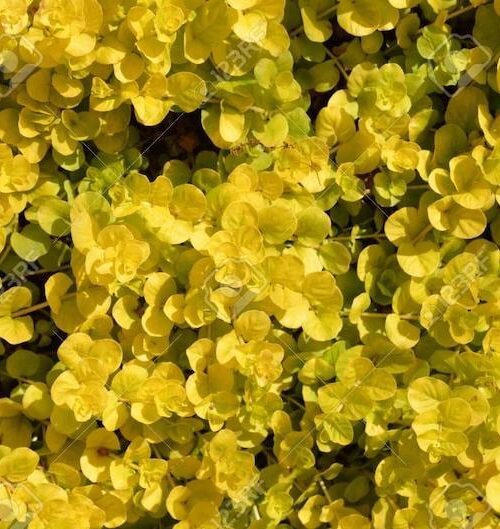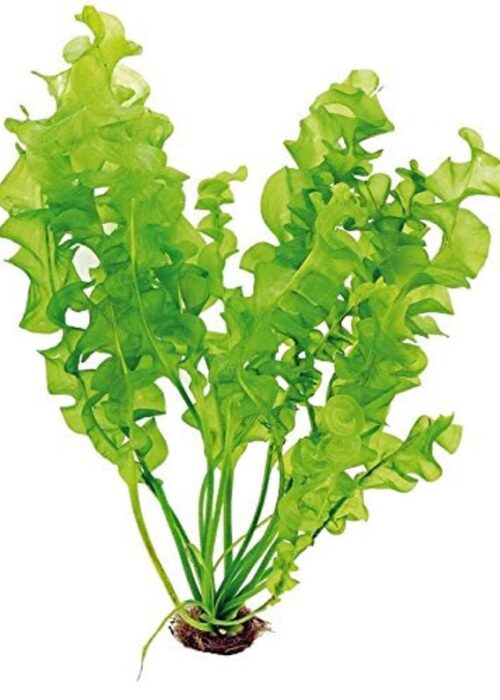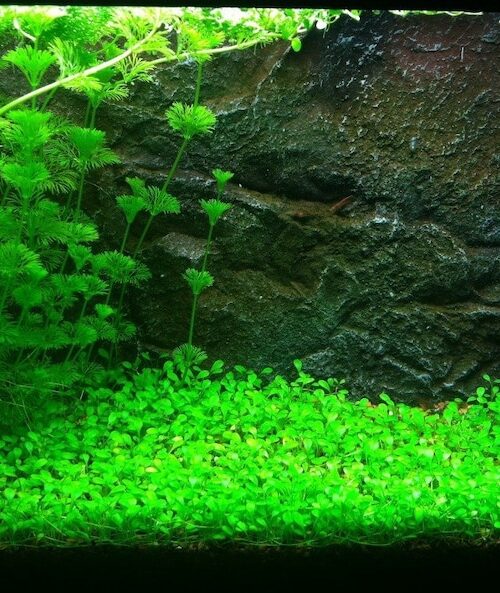A thriving planted aquarium doesn’t happen by chance — it requires careful selection of plants, proper tank setup, and consistent maintenance. Whether you’re a beginner or looking to upgrade your aquascape, this guide will help you choose the right plants and keep them healthy for years to come
1. Choosing the Right Plants
Selecting the right plants depends on your tank size, style, lighting, and maintenance goals. Here’s a breakdown:
Foreground Plants
-
Small, low-growing plants that create a carpet effect
-
Examples: Glossostigma elatinoides, Hemianthus callitrichoides, Eleocharis parvula
-
Perfect for: Dutch style, Iwagumi style, or natural carpet layouts
Suggested Products:
-
Carpet plant kits
-
Substrate for foreground plants (nutrient-rich, laterite-based)
Midground Plants
-
Medium-height plants to fill the middle layer
-
Examples: Staurogyne repens, Echinodorus tenellus, Cryptocoryne species
-
Perfect for: Nature style or Jungle style setups
Suggested Products:
-
Midground plant packs
-
Fertilizers for healthy growth
Background Plants
-
Tall plants that provide height and depth
-
Examples: Vallisneria americana, Limnophila aquatica, Hygrophila pinnatifida
-
Perfect for: Jungle or Dutch style aquascapes
Suggested Products:
-
Tall background plant bundles
-
CO2 kits for optimal growth
2. Understanding Plant Requirements
Different plants have varying light, CO2, and nutrient needs. Matching these requirements ensures vibrant growth:
| Requirement | Tips for Success | Recommended Products |
|---|---|---|
| Lighting | 2–4 watts per gallon; full-spectrum LED | Adjustable aquarium LED lights |
| CO2 Levels | Supplement CO2 for demanding plants | Pressurized CO2 kits, DIY yeast-sugar CO2 systems |
| Substrate & Fertilizers | Nutrient-rich soil for root development | Plant substrate packs, liquid/tablet fertilizers |
| Water Quality | Soft to moderately hard water; pH 6–7 | Reverse osmosis filters, water conditioners |
3. Planting Techniques
Proper planting improves growth and appearance:
Foreground Plants: Use tweezers to plant small stems or carpet plants individually.
Midground & Background Plants: Space them evenly to avoid overcrowding.
Epiphytes (e.g., Anubias, Java moss): Attach to rocks or driftwood with fishing line or aquarium-safe glue.
Suggested Products:
Aquascaping tweezers and scissors
Epiphyte plant packs (Anubias, Java moss)
Driftwood and stones for attachment
4. Maintenance Tips
Healthy plants require ongoing care:
Trimming
Regular trimming keeps plants healthy and encourages dense growth
Dutch style aquascapes may require weekly trimming
Jungle style may need monthly pruning
Algae Control
Excess light and nutrients can trigger algae growth
Use algae-eating fish/shrimp and regular water changes
Suggested Products:
Algae-eating shrimp (Neocaridina, Caridina)
Ancistrus or Otocinclus catfish
CO2 kits to optimize plant growth
Fertilization
Supplement root and water column nutrients
Follow dosing instructions to prevent nutrient imbalance
Suggested Products:
Liquid fertilizers for leaves
Root tabs for substrate feeding
5. Choosing Plants Based on Aquarium Style
Dutch Style: High diversity, red-leaved plants, neatly trimmed terraces
Nature Style: Fewer species, mosses, driftwood focal points
Iwagumi Style: Minimal plants, mostly carpeting, stones are main focus
Jungle Style: Fast-growing, tall plants, floating plants for canopy effect
Tip: Combining plant selection with your chosen style creates a harmonious aquascape that’s easy to maintain.
Final Thoughts
Choosing and maintaining the right plants is the foundation of a healthy and beautiful planted aquarium. By selecting suitable foreground, midground, and background plants, providing proper lighting and nutrients, and keeping up with maintenance, your aquarium will flourish for years.
Pro Tip: Start with a few beginner-friendly species like Java moss, Anubias, and Echinodorus if you’re new. Gradually add advanced plants as your confidence grows.


![Small pair of leaves [water grass seed]](https://aquascapy.com/wp-content/uploads/2025/04/QQ-20230507204913_720x_7a4c5366-cab1-4cf6-9ef0-7dfa04c88995-500x562.png)
![Golden Lloydiella-Golden Creeping Jenny [Lysimachia nummularia 'Aurea']](https://aquascapy.com/wp-content/uploads/2025/04/lysimachia-nummularia-aurea_2-500x700.jpg)
![Aponogeton Ulvaceus [Aquarium & Pond Aquatic Plant]](https://aquascapy.com/wp-content/uploads/2025/04/il_794xN.3976216171_hlg8-500x700.jpg)
![Glosso [Glossostigma elatinoides]](https://aquascapy.com/wp-content/uploads/2025/04/il_794xN.3845022931_gqrx-500x700.jpg)
![Hornwort-Coontail [Ceratophyllum Demersum]](https://aquascapy.com/wp-content/uploads/2025/04/il_794xN.3033889231_igl6-500x700.jpg)



